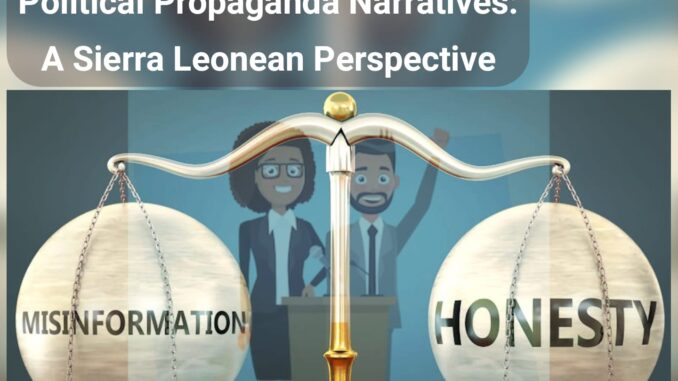
*The Integrity and Credibility Cost in Propagating Hardline False Political Propaganda Narratives: A Sierra Leonean Perspective*
In the political corridors of Sierra Leone, we, the young politicians, often find ourselves caught between idealism and pragmatism. The allure of gaining rapid political traction and public recognition sometimes leads us young politicians to adopt questionable methods, such as the use of false political propaganda narratives. However, while such tactics may offer short-term benefits, the long-term integrity and credibility costs can be devastating, both for us as individuals and the broader political climate.
*The Rise of Political Propaganda in Sierra Leone*
Sierra Leone’s political history has witnessed the use of propaganda as a weapon for manipulating public perception. From independence to present-day governance, both the ruling Sierra Leone People’s Party (SLPP) and the opposition All People’s Congress (APC) have experienced moments where narratives—true or false—have shaped public opinion. However, the intensification of social media, coupled with the emergence of us the younger politicians, has seen a sharp rise in the use of hardline propaganda.
For us young politicians, propaganda can seem like an easy route to boost our popularity and discredit opponents. Yet, beneath the immediate gains lies a deep-seated issue—false narratives, once exposed, erode trust and shatter the foundations of credibility. This damage particularly reflects a nation like Sierra Leone, where community-based politics thrives on personal relationships and trust.
*The Integrity Cost: Losing the Moral High Ground*
Integrity is one of the most valuable currencies a politician can have, especially in a country where the public is increasingly skeptical of the political class. Sierra Leonean voters are not only looking for politicians who can deliver on their promises but also leaders they can trust. When we, the young politicians, engage in false propaganda, we risk losing this vital connection with our constituents.
Statistics show that trust in Sierra Leone’s political system has been fragile. In a 2018 Afrobarometer survey, only 40% of Sierra Leoneans expressed trust in their elected officials. This already-low percentage reveals a trust deficit that can only worsen when politicians are found to be pushing dishonest narratives. For us young leaders, trying to build a career, the loss of integrity can be a near-fatal blow to our aspirations.
*Credibility in Politics: A Priceless Asset*
Credibility is essential to political leadership. Without it, even the most innovative policies, ideas, initiatives, and goodwill, will fail to gain traction. When a politician’s words no longer hold weight, they lose the ability to influence and mobilize the public. This is especially significant in Sierra Leone, where citizens have grown weary of empty promises from political figures.
An analysis of Sierra Leone’s 2018 general elections revealed that one of the biggest concerns for voters was the lack of transparency and honesty among candidates. Many voters chose to abstain from the polls because they felt there were no credible options. False propaganda plays a central role in this disillusionment. Young politicians, in our rush to ascend, often underestimate how much damage a false narrative can do to our long-term credibility.
According to a study from the University of Sierra Leone’s Institute for Governance Reform, political candidates perceived as dishonest were twice as likely to lose voter support, even if their policies aligned with the voters’ interests. This highlights the critical need for truthfulness in political engagement.
*The Ripple Effect: Damage to the Political Landscape*
Beyond the personal costs to young politicians, false propaganda narratives have a corrosive effect on the political landscape. In Sierra Leone, where political affiliations often align with tribal and regional identities, false information can deepen divisions and create long-term tensions between communities and even amongst comrades with different representations of belonging.
For us young politicians who engage in these tactics inadvertently contribute to a political culture where misinformation becomes normalized. This not only undermines democracy but also makes it harder for credible, issue-based politics to take root. The propagation of hardline, false narratives increases voter apathy and polarizes the political space, making it harder to achieve consensus on crucial national issues.
*The Path Forward: Building a New Political Ethos*
For Sierra Leone’s young politicians, the path to sustainable leadership requires a rethinking of political strategy. Instead of relying on false propaganda, we must focus on building a reputation grounded in truth, transparency, and accountability. This will not only restore trust in the political system but also create a more vibrant and informed electorate.
Young politicians need to embrace a new political ethos where integrity and credibility are non-negotiable. Rather than seeking short-term gains through dishonest means, we should build our careers by demonstrating competence, connecting with the grassroots, and engaging in meaningful discourse that reflects the actual needs and aspirations of Sierra Leoneans.
*A Warning To Us Young Politicians*
In the context of Sierra Leone’s political reality, the integrity and credibility costs of false propaganda far outweigh the short-term benefits. For young politicians, this is a lesson that we should not ignore. While false narratives may seem effective in the short run, they carry long-lasting damage that can cripple one’s political future. To lead effectively and create real change, young leaders must choose the harder, but more rewarding path of truthfulness, ensuring that we build a lasting trust with the people we seek to serve. Only then can we shape the future of Sierra Leone in a way that fosters unity, development, and progress for all.
©️The Mighty APC.

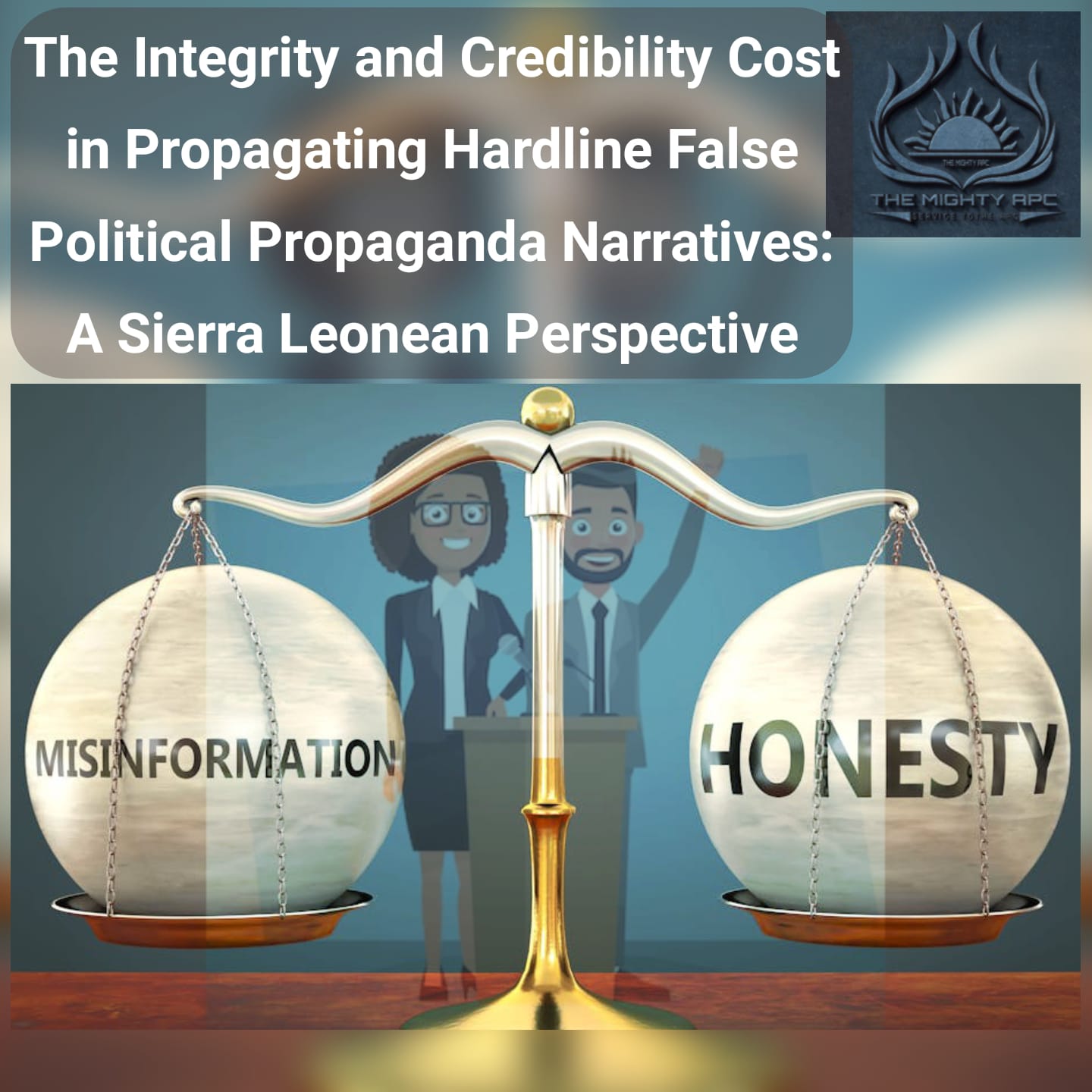
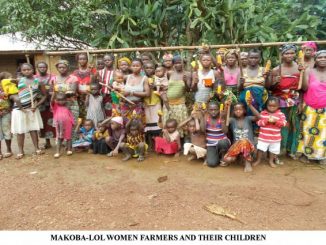
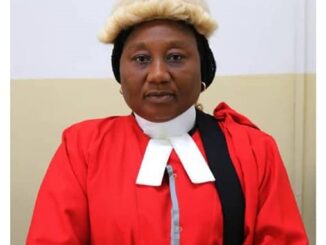
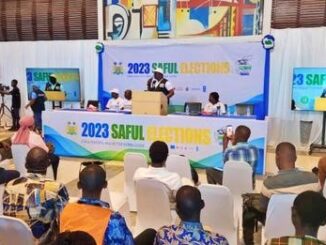
Leave a Reply